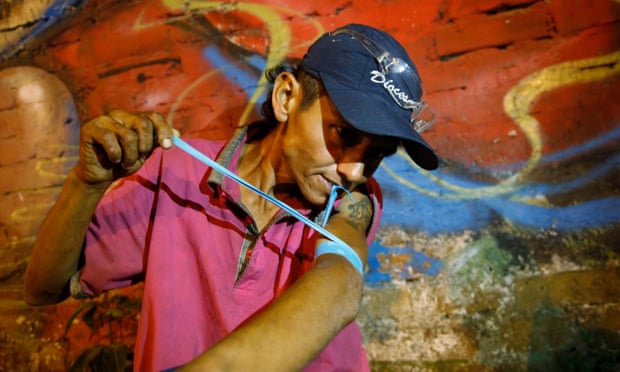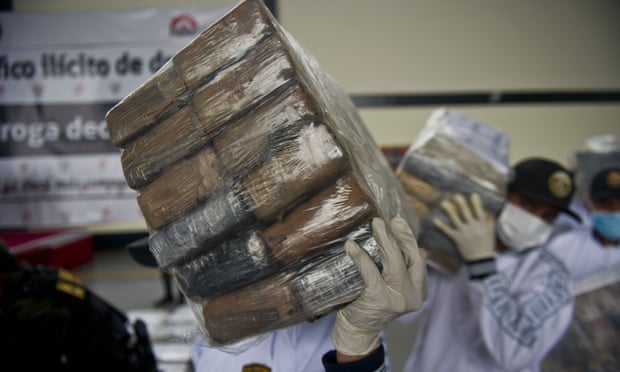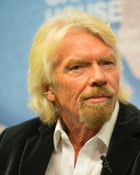The UN’s war on drugs is a failure. Is it time for a different approach?

The year 2008 was momentous. Lehman Brothers collapsed, Radovan Karadžić was arrested, Russian troops massed on the Georgian border, and Barack Obama beat John McCain to the White House.
But 2008 was also significant for something that didn’t happen. It was the year that the world didn’t eliminate the illicit drugs problem. This quixotic goal had been set a decade earlier at a United Nations general assembly special sessionwhen, under the vainglorious slogan “We can do it”, the supranational body pledged that, by 2008, the world would be “drug free”.
Now, as the UN prepares to host another special session on drugs in New York this month, the failure of the 1998 assembly to realise the goal is recorded in the vast amounts of money, resources, time and blood that have been expended in pursuing the apparently impossible.
As Ending the War on Drugs, a new book of essays from some of the leading critics of drugs laws, spells out in chilling detail, pursuing such an ambition has cost taxpayers around the world $100bn (£70.5bn) a year, roughly the same amount spent on foreign aid.
The main beneficiaries of the laws – framed around the 1961 UN single convention on narcotic drugs, which prohibits the production and supply of a number of named substances – are criminal organisations, which have gained control of a global market with a turnover of more than $320bn a year.
Meanwhile, millions of people have been criminalised for non-violent drug offences, leading to more than 1.4 million arrests in the US in 2014 alone. In countries such as Iran and Saudi Arabia, executions for drug trafficking have soared.
The death toll has reached nightmare proportions. In Mexico, 30 people a day are dying in the battle between drug cartels and government forces. And these are just the obvious deaths. Last month a commission set up by the Lancet medical journal and Johns Hopkins University declared that the drugs laws had not only failed to curb drug use and fuelled violent crime, they had also helped to spread HIV and hepatitis C by encouraging unsafe injecting.
By any yardstick, the 1961 convention has been a spectacular failure, one that has had devastating consequences for those caught in the crosshairs of the war on drugs – a war, critics say, that is of the UN’s making.
“Given that the UN was set up to maintain security, it seems more than an oddity that it is running a war out of its own offices,” said Danny Kushlick of the pro-reform campaign group Transform.
Even the UN Office on Drugs and Crime (UNODC) acknowledges its failure. Its own analysis notes: “Global drug control efforts have had a dramatic unintended consequence: a criminal black market of staggering proportions. Organised crime is a threat to security. Criminal organisations have the power to destabilise society and governments. The illicit drug business is worth billions of dollars a year, part of which is used to corrupt government officials and to poison economies.”

It is unsurprising, then, that the many governments and civil society groups pushing for drug law reform are hoping that this year’s UN special session does not repeat the mistakes of the past.
In 2012, Mexico, Colombia and Guatemala called for the special session to be brought forward two years to 2016, citing an urgent and pressing need for reform. In an interview with the Observer in 2011, Colombia’s president, Juan Manuel Santos, called for a comprehensive overhaul of drugs laws, highlighting the absurdity of a “one law fits all” policy as countries started to impose unilateral reforms. “I ask myself how you explain marijuana being legalised in California [for medicinal purposes] and cocaine consumption being penalised in Idaho? It’s a contradiction.”
It is not just those countries torn apart by the war on drugs that feel the contradictions. Numerous UN agencies – notably UNAids, UNWomen and UNHCR, the refugee agency – have criticised the promotion of prohibition as articulated through the Vienna-based UNODC and the UN Commission on Narcotic Drugs. But hopes that this month’s special session will deliver substantive change look forlorn. The draft outcomes document circulating before the session even begins by confirming that the UN intends to reaffirm its support for prohibition.
This is despite UN secretary general Ban Ki-moon calling for all participating countries “to conduct a wide-ranging and open debate that considers all options.”
But few believe this has happened. “It is supposed to be an open, inclusive process that has considered all the options,” said Ann Fordham of the International Drug Policy Consortium. “But we feel that civil society views have not been adequately reflected in the discussions.”
Yet it would be wrong to see the forthcoming special session as an irrelevance. Rather it offers a chance to compare how much has changed since the last session – if not within the UN, then outside it. “The voices of reform are getting stronger,” Fordham said. “It’s a slow burn. They are saying, you guys can stay in your ivory towers in Vienna or New York and pretend that the world isn’t changing around you, but it is.”
Daniel Wolfe, director of the international harm reduction development programme at the Open Society Foundations, agrees with Fordham’s analysis. For Wolfe, the established UN consensus no longer holds. Too many countries damaged by the war are now challenging the orthodoxy.
Indeed, in the last decade many former heads of state and eminent scientists have tied their colours to the mast of the influential Global Commission on Drug Policy (GCDP) – and come out against maintaining the status quo.
What is significant now, though, is that incumbent governments, both big and small, are starting to agree. Portugal decriminalised all drugs in 2001, while Switzerland has pioneered the policy of heroin prescription; the US states of Washington and Colorado have legalised the sale of marijuana for recreational purposes. In May 2014, Uruguay unveiled reforms to make it the first country in the world to legalise sales of marijuana. A year later Canada’s newly elected prime minister, Justin Trudeau, announced that possession of marijuana for recreational use would be legalised.
The same year the Mexican supreme court concluded that national laws making it illegal personally to produce, possess and consume marijuana violated the rights of Mexicans, paving the way for decriminalisation. There has also been an explosion in harm reduction initiatives at the subnational level. Drug consumption rooms and drug testing laboratories – allowing users to consume or check their narcotics without fear of prosecution – have mushroomed across cities in Canada, Spain, Germany, the Netherlands and Switzerland.
Even the US, one of the most ferocious defenders of the status quo, appears to accept that the game is up. In 2014, in a little noted intervention in the drug control debate, Bill Brownfield, assistant secretary of state for the Bureau of International Narcotics and Law Enforcement Affairs, observed: “Things have changed since 1961. We must have enough flexibility to allow us to incorporate those changes into our policies … to tolerate different national drug policies, to accept the fact that some countries will have very strict drug approaches, other countries will legalise entire categories of drugs. All these countries must work together in the international community.”

Further evidence that the US may be subtly shifting its position came last week as Barack Obama addressed a drug addiction conference in Atlanta. “For too long we’ve viewed drug addiction through the lens of criminal justice,” the US president said. “The most important thing to do is reduce demand. And the only way to do that is to provide treatment – to see it as a public health problem and not a criminal problem.”
Such an acknowledgement is long overdue in the mind of Professor Michel Kazatchkine, the UN special envoy for HIV/Aids in eastern Europe and central Asia and a member of the GCDP, who was one of the first physicians in Europe to treat people with HIV/Aids.
Kazatchkine attended the 1998 special session and observes that, since then, there has been a change in how many states discuss drugs. “There has been a shift in language,” he said. “There is more importance placed on health.” But only in certain countries. In others, notably Russia and several east African states where drug use is subject to zero tolerance by the authorities, drug-related deaths from HIV and hepatitis C are escalating.
On some days Kazatchkine is optimistic that the call for reform is being heard. “When the sun is shining outside and the sky is blue, you could indeed think that we are at the beginning of a process of significant change. When it’s raining you think how is it that with all the evidence we have of the failure of drug policies and of the recognition that a world free of drugs is an impossible and unnecessary myth, that the world is not moving faster? The very notion of a world without drugs is totally useless. It serves prohibition and prohibition serves repression and repression serves abuses of human rights and negative impacts on human health.”
Some Latin American countries, frustrated by what will be perceived as lack of progress at this month’s special session, may choose to issue their own minority report as a counter to the prohibitionist arguments advanced by the UN. This would help to set the agenda for 2019, when the UN must set out its next 10-year drugs strategy. By then Canada and California will have legalised cannabis markets, which experts say will make a mockery of a blanket prohibition policy – but only up to a point.
“Will cannabis reform help?” asked Kasia Malinowska-Sempruch, director of the Open Society Foundations global drug policy programme. “Of course, but if it’s only cannabis reform then the poorest, most vulnerable, most marginalised folk will keep on suffering.”
By 2019 the UN will have a new secretary general too. “The fact that the outgoing secretary general comes from Asia, a region with the most draconian policies, probably didn’t work to our advantage,” Malinowska-Sempruch said. “Whoever comes next will have to take this on in a very significant way.”
A game-changer would be if the leader of a developed country came out firmly against prohibition, something that would turbocharge the drive for reform. But this looks unlikely. Even the most candid and unabashed of politicians, Donald Trump, who in the 1990s firmly supported legalisation, has changed his mind now that he is marching on the White House.
Nevertheless, Wolfe believes the world is approaching a tipping point. “To a certain extent the most promising reforms will be from outside Geneva or the headquarters of the UN. They will come from communities saying we can’t afford to wait for bureaucratic processes and old thinking to catch up. You get paradigm shifts when the contradictions accumulate so much that it is clear the existing system or pattern of thought is no longer adequate to capture the reality, and we may be approaching one of those times with drugs.”
Malinowska-Sempruch draws a comparison with the Aids crisis. “There were awful times when people were dying and there was no medicine. Within a span of 10 years we moved to a situation where retrovirals were available. There wasn’t a switch that went on for people. There was a process of outrage and an articulation of fairness that focused on the difference between how life is considered in the global north and how it is considered in the global south and how awful that discrepancy is. That was what got people to move.”
The pledge that will be made at this year’s special session is for a society free of drug abuse by 2019. This is an advance on the previous session’s promise to make the world drug-free by 2008. A semantic tweak perhaps but one that speaks volumes, Malinowska-Sempruch believes. “It’s a subtle shift, but I think it’s a significant one.”

Call for reforms
The United Nations general assembly special session (UNgass) on drugs was due to be held in 2018 – two decades on from the last session. But it has been brought forward following calls in 2012 from Mexico, Colombia and Guatemala for urgent reform of global drug control policy. These are three countries that have felt at close hand the consequences of the war on drugs and have been vociferous in calling on the world to move beyond blanket prohibition.
Despite pleas for reform, the UN has been resolute in its support for the status quo, ignoring the seismic social, cultural and juridical shifts that have taken place since the last session – and the fact that prohibition has been exposed as a failure.
In its submission to the special session, Colombia quotes Albert Einstein’s aphorism that the definition of insanity is “doing the same thing over and over again and expecting a different result”. And yet this is the approach favoured by the UN Office on Drugs and Crime and its Commission on Narcotic Drugs, which have been unbending in their defence of the policy.
Sir Richard Branson, a Global Commission on Drugs Policy commissioner, argues that the true importance of special session lies in affording countries and civil society groups a chance to make their voices heard. This, in turn, will create momentum.
“The key now is to understand the long-term trajectory. UNgass is a milestone, but it isn’t the last opportunity for change. The next couple of years will see more countries begin to experiment and enter new territory.
“What also matters about UNGASS are signals and gestures. Already, some governments are preparing powerful statements. So, as the world’s attention turns to New York for a brief moment, let’s make this session a strong show of dissent. That may actually be more impactful than the outcome document itself.”
